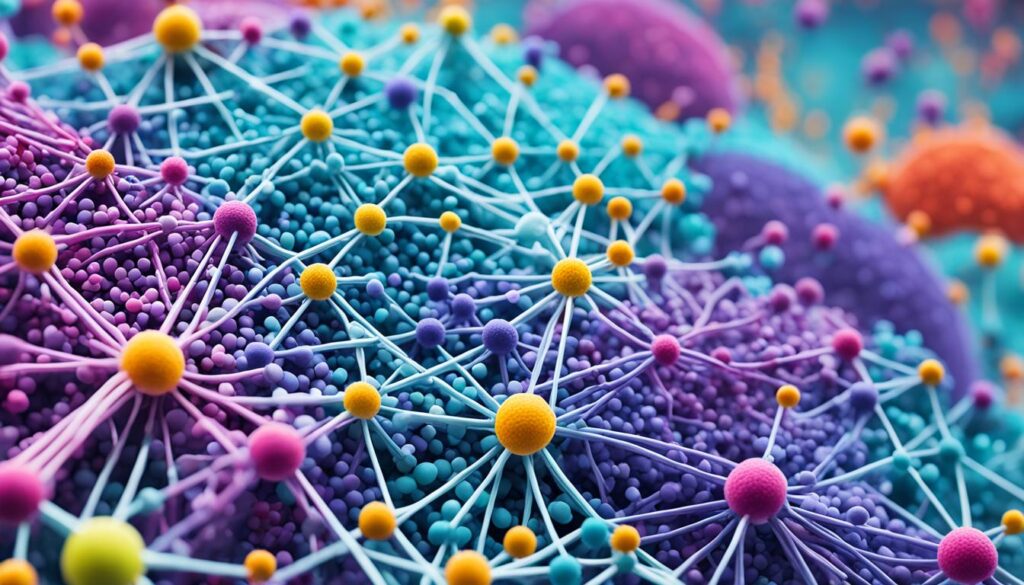Uncategorized
The Connection Between Hormones and Your Skin: What You Need to Know
In this article, I’ll delve into the strong link between hormones and your skin. Explaining how these silent forces can impact the health and look of our skin. We’ll look at how hormonal changes in puberty and menstruation, and imbalances affect our skin. By knowing this, you can take charge of your skin’s health for a glowing look.
Key Takeaways
- Hormones are powerful chemical messengers that significantly influence the health and appearance of our skin.
- Hormonal fluctuations during key life stages, such as puberty and the menstrual cycle, can have profound effects on the skin.
- Estrogen and testosterone play crucial roles in maintaining skin health and can impact skincare needs.
- Hormonal imbalances, such as those seen in Polycystic Ovarian Syndrome (PCOS) and thyroid disorders, can lead to specific skin conditions.
- Understanding the connection between hormones and skin can empower you to take proactive steps towards achieving a healthy, radiant complexion.
Introduction: Understanding the Hormonal Impact on Skin
Our skin and hormones are deeply connected. Hormones are like messengers influencing our skin’s health and looks. By exploring this link, we learn how hormones shape our skin health, functions, and appearance.
Hormones: The Invisible Forces Shaping Our Skin
Hormones come from the endocrine system and affect many body functions. These forces are active from puberty through to aging. They tune sebum production, skin color, healing, and flexibility.
The Intricate Relationship Between Hormones and Skin Health
Our skin acts as a endocrine organ. It deals with hormones, nearly like a dialogue. This process is key for skin stability and strength. Recognizing this link helps us maintain a glowing face.
Hormonal Fluctuations and Their Skin Effects
Our bodies go through many hormonal changes throughout life. These changes can greatly affect our skin’s health and look. From puberty’s start to the hormonal shifts in our menstrual cycles, it’s crucial to know how these changes impact our skin. Understanding different hormonal changes helps us keep our skin looking fresh and strong.
Puberty: The Onset of Hormonal Changes and Acne
As puberty starts, our bodies have more testosterone and estrogen. These changes can deeply affect the skin. The more sebum made by our skin, mixed with pore blockage, can cause acne. This is a common problem for many teens.
During puberty, hormones can make the skin more sensitive, red, or rough.
Menstrual Cycle: The Ebb and Flow of Hormones
The menstrual cycle’s hormonal shifts also impact the skin. The ups and downs of estrogen and progesterone can change oil production, cause breakouts, or affect skin water and color. Knowing how these hormones change can help manage acne and have a healthy complexion during our cycle.
Hormones and Skincare (Effects)
Hormones are vital for our skin’s health and look. Estrogen and testosterone are two key players. They change how we take care of our skin.
Estrogen: The Skin’s Best Friend
Estrogen mainly helps women keep their skin healthy and young. It boosts collagen, making skin elastic and firm. It also keeps skin moist by boosting sebum and helps skin fight damage. Plus, it’s good at calming down skin that’s upset.
As women get older, they make less estrogen. This might cause skin to lose its bounce and become dry. Using products that add estrogen back can help keep skin bright and soft.
Testosterone: The Double-Edged Sword for Skin
Testosterone is key for men’s skin health but too much can cause trouble. It helps keep skin soft by making sebum. It also helps keep skin firm. Yet, too much sebum might lead to pimples by clogging pores.
If someone has too many male hormones, their skin might act up. They might need special skincare to keep their skin in good shape.
| Hormone | Skin Effects | Skincare Considerations |
|---|---|---|
| Estrogen | – Promotes collagen production – Enhances skin hydration – Has anti-inflammatory properties |
– Use estrogen-based skincare products – Maintain skin elasticity and moisture |
| Testosterone | – Stimulates sebum production – Contributes to skin thickness and elasticity – Can lead to acne if in excess |
– Manage hormonal imbalances – Use targeted skincare for acne-prone skin |
Hormonal Imbalances and Skin Conditions
Exploring the link between hormones and skin health shows how hormonal imbalances affect specific skin issues. We’ll look closely at Polycystic Ovarian Syndrome (PCOS) and thyroid disorders.
Polycystic Ovarian Syndrome (PCOS) and Skin Manifestations
Polycystic Ovarian Syndrome (PCOS) affects up to 10% of women of reproductive age. This disorder causes higher androgen levels, leading to serious effects on the skin. Women with PCOS might have ongoing acne, excessive body and facial hair, and darkened skin in some places. It’s vital to understand and treat these skin problems for those with PCOS.
Thyroid Disorders: The Underrated Skin Influencer
Thyroid issues, like hypothyroidism and hyperthyroidism, can change how our skin looks and feels. Hypothyroidism can cause dry, rough, and easily irritated skin, feeling very cold. But, hyperthyroidism leads to more sweat, a warm and wet feel, and looking flushed. These skin signs are key to spotting and managing thyroid conditions.
Learning about how hormonal imbalances affect skin helps us understand the deep connection between our hormones and our skin’s health. This understanding can help us get the right health care, use the best skin care, and balance our hormones for better skin well-being.


